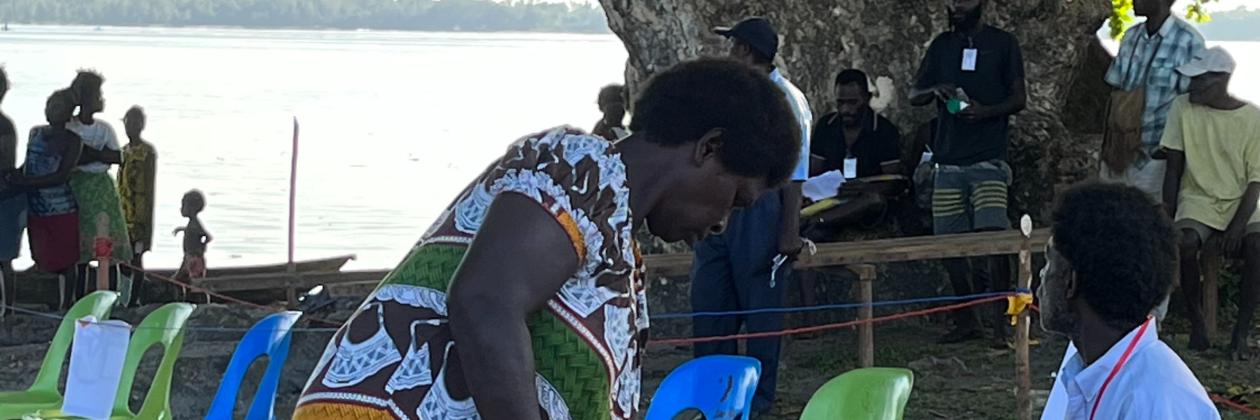
Uniting to End Violence Against Women in Elections in the Pacific Islands
Violence against women is the most prevalent human rights violation around the world. When this violence is used to keep women from participating in public life, it has devastating consequences. As part of the 16 Days of Activism Against Gender-Based Violence campaign, it is critical to shed light on this pervasive issue. According to the United Nations, more than one in three women globally experience gender-based violence during their lifetime. Despite these harrowing statistics, we also know that gender-based violence is underreported, and thus we must undertake specific efforts to understand women’s experiences with violence and its consequences.
The International Foundation for Electoral Systems (IFES) undertook several assessments since 2019 in the Pacific Islands - using its tested, global methodology - to better understand the link between gender-based violence and women’s ability to exercise their political rights. Our findings highlight the far-reaching consequences that decades of political violence and gender-based violence have had on the women of the Pacific Islands and their ability to be part of decision-making processes that affect their everyday lives. Mitigating and preventing violence against women in elections (VAWE) is particularly critical in the Pacific Islands region, where the rates of gender-based violence (60-80%) are twice as high as the global average (30%) and the levels of women in parliament (18%) are lower than the global average (27%).
Findings from IFES’ research found that social, cultural and institutional gender inequalities are connected to the prevalence of violence against women in electoral processes. For example, patriarchal cultural norms that promote male dominance and subordinate women create a lack of autonomy for women in decision-making roles and limit their personal freedoms. These norms have led to family voting practices where women are instructed by husbands, fathers or male community leaders to vote for certain candidates, despite laws guaranteeing ballot secrecy and prohibiting bribery or undue influence. If women decide to vote differently than instructed, or if there is even a perception as such, they can face harassment, intimidation, or even physical violence.
“If someone wanted to go against the boys and vote for another [candidate], they would just bring trouble on themselves,” a woman voter in Papua New Guinea said.
IFES’ research also found that the most common form of VAWE is verbal violence including gossip, harassment, and character assassination, especially in the pre-election period. Globally, 82 percent of women parliamentarians experience some form of psychological violence. This is a powerful tool in small island countries with strong community structures where word travels fast. For example, in Papua New Guinea, women candidates interviewed reported being “hyper-scrutinized” during the campaign period, as their marriage and family lives were common topics of gossip within the community and among other candidates to attack their character. One interviewee recounted being told “straighten your home first before going into politics.” On the other hand, the private lives of male candidates were rarely discussed, and if they were, it did not significantly affect their political careers.
While gender-based violence in elections remains a constant threat, there has been some progress in recent years. IFES’ research helps inform recommendations and interventions to better mitigate this violence moving forward. For example, the onus of promoting women’s rights has often been put squarely on the shoulders of women but engaging men as allies and advocates in advancing gender equality is critical. IFES recently implemented its Allies for Equality training curriculum in the Autonomous Region of Bougainville to equip male leaders in community governments with the knowledge and skills to promote women in leadership and the confidence to speak out and stand up when gender inequality occurs.
As the 2022 16 Days of Activism to End Violence Against Women and Girls comes to an end, it is important to continue to prevent and mitigate violence against women in elections and to support survivors of this violence. Partnerships and cooperation between governments, civil society, media, political parties, and citizens are essential to unite against the endemic of violence against women in elections and to create a safe space for women and girls to have a voice in the futures of their own lives, their communities, and their countries.
Story by Deborah Landau, Senior Gender Program Officer and Sacha Stein, Program Officer



